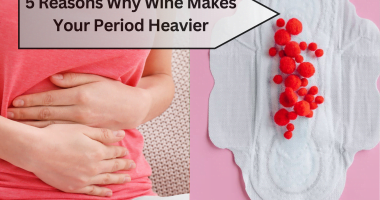Twins are two offspring produced by the same pregnancy. A twin pregnancy can occur either when two separate eggs become fertilized in the womb(Fraternal twins) or when a single fertilized egg splits into two embryos( Identical twins).
Unlike in the past, it is now common to have twin births. Research from the Centers for Disease Control and Prevention (CDC) indicates that the twin birth rate in the United States has experienced a significant increase over the past few decades. As of 2022, the twin birth rate was recorded at 31.2 per 1,000 live births.
Worthy to mention that a previous report from the CDC shows that twin births have nearly doubled over the last 40 years.
The chances of a woman having twins are higher when conception is assisted with fertility treatment or the age of the woman is above 34 years. Aside from maternal age, the CDC study showed that one-third of twin pregnancies in the United States resulted from conception assisted by fertility treatments. Hence, assisted reproductive technologies, including IVF, are increasingly common, leading to a doubling of twin births over the past four decades.
However, there are many myths about how to improve the odds of having twins. Although there are no proven ways to increase the likelihood of conceiving twins, there are certain factors that can increase the chances of this type of pregnancy to occur more. These factors include:
1. Overweight
Women who are obese with a body mass index (BMI) over 30 are more likely to conceive twins than women with a healthier BMI. This may sound ironic since overweight women are also more likely to have difficulty conceiving.
To shed more light on this, extra fat leads to increased levels of estrogen. So, the higher levels of estrogen may lead to overstimulation of the ovaries. Instead of releasing just one egg at ovulation, the ovaries may release two or more. Here are 12 reasons why you may want to lose weight
2. Race
Your racial background is a significant factor that influences your chance of having twin babies. For example, African-American women are more likely to conceive twins than any other race. Asian Americans and Native Americans consistently exhibit the lowest twinning rates among various ethnic groups. Children’s Wisconsin and Science Daily studies affirm that these rates are significantly lower compared to other populations. In contrast, Caucasian women, particularly those over the age of 35, have the highest incidence of higher-order multiple births, which include triplets or more. This trend is attributed to a combination of factors, including advanced maternal age and the increasing use of assisted reproductive technologies (ART), such as in vitro fertilization (IVF) and ovulation-stimulating medications, which can lead to multiple gestations.
3. Pregnancy Shortly After You Stop Taking Oral Contraceptives
Oral contraceptives are a popular way to stave off unwanted pregnancies, as they work their magic by halting ovulation. Of course, no form of contraception is foolproof, but the pill often does the job of keeping pregnancy at bay, so long as it’s taken properly. Because the pill interferes so drastically with a woman’s natural cycle and hormonal balance, it’s not uncommon to assume the body will take time to fully rid itself of the pill’s effects. But that’s not always the case. In fact, your body could be ready to conceive sooner than you’d think — with twins.
4. Fertility Treatment
The choice to begin any kind of fertility treatment is a big decision. Perhaps you’ve been unlucky in your journey to becoming pregnant at all. Or maybe, you’re dead set on having multiples. If that’s the case, IVF may be the way to go. Research shows women who’ve undergone fertility treatments are more likely to have twins, specifically identical twins.
According to Healthline the chances of conceiving twins through IVF can be as high as 25%, compared to approximately 6% in natural pregnancies. This increase is often due to the practice of transferring multiple embryos during the IVF process, which raises the likelihood of multiple births. Fertility medications such as Clomiphene and gonadotropins are also utilized to stimulate ovulation, further enhancing the chances of conceiving twins. These medications can lead to the release of multiple eggs, which, if fertilized, may result in fraternal twins. Studies show that about one-third of twin pregnancies in the United States are attributed to fertility treatments
Of course, discussing any and all family planning with your doctor is key. The health of both you and your potential child depends on a wide variety of factors.
Also read: Pregnancy Diet For Brainy Child: Best Prenatal Foods To Eat For Smarter Baby
5. Maternal Age
Women over 30 are more likely to conceive multiples. This is because the hormone FSH rises as a woman gets older. FSH, or follicle-stimulating hormone, is responsible for the development of eggs in the ovaries before they are released. Higher levels of FSH are needed as a woman ages because the eggs require more stimulation to grow than in a younger woman.
This is somewhat ironic, given that increased FSH is also due to lowering fertility. But sometimes, the follicles overreact to the higher FSH levels, and two or more eggs are released, resulting in a twin pregnancy.
6. Height
Women who are taller than average are more likely to have twins. Women with an average of 164.8 cm in height (about 5′ 4.8″) are more likely to conceive twins than women averaging 161.8 cm (about 5′ 3.7″).
Why this happens, is still not clear, but one theory is that better nutrition (which may lead to more height) is partially behind the increased rate of twins.
7. Family History
A family history of identical twins does not make it more likely you’ll have multiples. However, if you have fraternal twins (non-identical) in your family, your chances of conceiving twins are high. If there are fraternal twins on both the mother and father’s side, your odds for twins go up even higher.
A history of fraternal twins on the female side of the family indicates a higher likelihood of ovulating more than one egg per cycle. While a history of fraternal twins on the male side indicates a higher likelihood of the man producing enough sperm to fertilize more than one egg.
8. Diet
While research is still ongoing, one Healthline report suggested that women who eat a lot of dairy products are more likely to conceive twins. This is, as a result, dairy lovers have an increased chance of ovulating more than one egg at a time, thus increasing their chances of conceiving fraternal twins. So, take more dairy products if you want to have twin births
9. Breastfeeding
The chances of having multiples increases, if you conceive or become pregnant while lactating( breastfeeding your child). According to mom.com, women who conceive while they’re still breastfeeding are nine times more likely to have twins than those who are no longer nursing at the time of conception. Again, it all goes back to your IGF(Insulin-Like Growth Factor) levels, which are elevated in nursing women to help produce milk. In turn, you’re increasing the odds of releasing more than one egg during ovulation.
It’s true that breastfeeding can also suppress fertility and prevent pregnancy, specifically during a baby’s first six months if the baby is exclusively breastfed. But it is also possible to get pregnant when breastfeeding and it is more likely to be twins.
10. Number Of Pregnancies
Women with larger families and those who have had several pregnancies have increased chances of conceiving twins. This is because after each pregnancy you’re a little bit older (which in itself higher the chances of having twins). Aside from age-related reasons, hormonal changes and genetic predispositions add to the possiblity. The increasing prevalence of twin births reflects broader societal trends in family planning and reproductive health.
You can also read about How to Manage Cravings to Prevent Gestational Diabetes During Pregnancy
Bottomline
Your chances of having twins will depend not just on your use of fertility drugs, but also on your family history, race, age, and other factors mentioned above. These factors do work together. In other words, a tall woman with a family history of fraternal twins is more likely to conceive twins during fertility treatments than a short woman without any family history of twins. Furthermore, twins and multiple pregnancies also vary among fertility clinics. Twin pregnancy differs based on how carefully the clinic tracks ovulation stimulation during fertility drug use and how many embryos they transfer during IVF. Therefore, if are considering having twins, make a proper inquiry before you choose a clinic.
Also read about 9 signs you are possibly pregnant with twin babies









